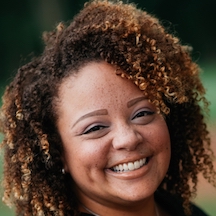 George Washington University in Washington, D.C., has recently launched efforts aimed at increasing diversity and to create a welcoming environment on campus for all students, faculty, and staff. After students voiced concerned about racism and bias on campus, the university outlined a response plan to deal with this issue. The plan was created from input from students, faculty, and staff.
George Washington University in Washington, D.C., has recently launched efforts aimed at increasing diversity and to create a welcoming environment on campus for all students, faculty, and staff. After students voiced concerned about racism and bias on campus, the university outlined a response plan to deal with this issue. The plan was created from input from students, faculty, and staff.
 First of all, Jordan West, a formally trained social justice educator, has been named the inaugural director for diversity and inclusion education. In her new position, she will be developing programming that addresses issues concerning diversity, racism, bias, and other topics. Prior to joining the university, Jordan was the inaugural senior diversity and inclusion training specialist at Princeton University. Jordan earned her master’s degree in college student affairs – with an emphasis on social justice in higher education – at Pennsylvania State University and her bachelor’s degree in psychology at the University of Maryland College Park. She is completing work on a doctorate in the cultural foundations of education at Syracuse University.
First of all, Jordan West, a formally trained social justice educator, has been named the inaugural director for diversity and inclusion education. In her new position, she will be developing programming that addresses issues concerning diversity, racism, bias, and other topics. Prior to joining the university, Jordan was the inaugural senior diversity and inclusion training specialist at Princeton University. Jordan earned her master’s degree in college student affairs – with an emphasis on social justice in higher education – at Pennsylvania State University and her bachelor’s degree in psychology at the University of Maryland College Park. She is completing work on a doctorate in the cultural foundations of education at Syracuse University.
Additionally, a Bias Incident Response Team site will be launched in the coming weeks and will be featured on the Office of Diversity, Equity, and Community Engagement website. It will allow any member of the university community to report verbal harassment or other forms of misconduct motivated by hatred based on race, color, religion, gender, sexual orientation, national origin, or any other factor.
Some of the other recent initiatives include mandatory online diversity training for first-year students, residence-life student leader sessions on diversity, Greek-life inclusion programs, updates to university policies, and faculty and staff diversity training.
African Americans make up 7 percent of the undergraduate student body at George Washington University. The city of Washington, D.C., where the Black population was higher than 70 percent a generation ago,vnow has a population that is 49 percent Black.










